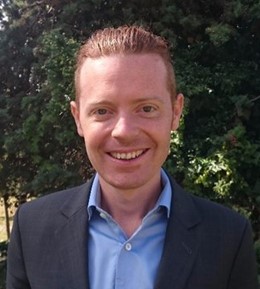Welcome to Issue 47!
 Welcome to the 47th edition of the International House Journal.
Welcome to the 47th edition of the International House Journal.
We have our usual selection of practical and informative articles this time round and I’d like to thank all those who expressed an interest in writing for us. We cannot publish everyone but do endeavour to work with writers toward publication and so I am happy to welcome some first-time IH Journal writers in this edition. We also welcome Simon Cox of IH General Plan Shanghai to the management column.
Another welcome development is the IH Journal Blog being back up and running after its recent hiatus and I’m very happy to restart the blog with regular IH Journal contributor Maria Conca’s post on Project-Based Learning. You can find Maria’s post, and all previous posts, on the blog page here. We will publish blog posts more regularly than full editions and so if you have an idea for post, please get in touch.
Moving back to the journal, our younger learners section has an article by regular columnist Xana de Nagy musing on how procedures we learn at early stages in our careers stay with us. Teacher Training columnist Arthur Laing writes about how and how much a trainer should intervene in lesson planning and feedback on initial training courses, key areas in which the type of procedures Xana writes about are learnt. As ever, Arthur’s ideas lead us to question our practices as trainers and reflect on our own internalised training procedures, something we should all bear in mind. Amy Gowers also mentions the importance of established procedures in her article about teaching teenagers, answering some teachers’ questions as she writes.
There are some other links between articles in this edition. Derek Keever considers lesson aims and what these add (or detract) from a lesson, and Raul Paul Farguell has a related piece on a project to use can-do statements in IH BKC Moscow. Though quite different, both articles prompt reflection on how and why we write lesson aims, thinking about implications for the learners too. In management, Simon Cox uses the recent example of the problems at Boeing to illustrate how what we aim to do in fixing a problem may not be the best solution. As Simon notes, we should be grateful our aims as teachers and ELT managers do not cause problems like Boeing’s.
Moving into the classroom, Ethan Mansur and Miguel Talag share some best practices for using PowerPoint in class, something many can learn from (as anyone who has sat through a bad PowerPoint presentation can attest to). Anastasia Nefedova has some ideas for working with large monolingual classes and Hall Houston invites us to consider what it would be like to give learners more choices. Damien Marwood shares his experiences in teaching learners from East Asia, with some classroom tips for those having trouble getting their learners speaking (tips that would work in any classroom). We also have an excellent piece by Emma Gowing building on the relatively recent developments in going beyond simply testing comprehension in listening lessons. Tanya Khudoyerko adds reading to this edition to complete the receptive skills, taking a look at what skimming is and how to help learners with it. Last but not least for classroom ideas, Christopher Walker has an enjoyable article on Folk Etymologies and shares a comprehensive lesson plan to download from his blog. I am also happy to welcome Laura Zúñiga to the Journal and thank her for her writing about using songs in the Spanish language classroom.
Finally, Sandy Millin has some more advice for teachers struggling with work-life balance, and Rory Duncan continues the theme by thinking about what could cause teachers to fail (or burn out), drawing inspiration from a recent book on the life of junior doctors in the UK. Keith Armstrong completes the management section by drawing comparisons between lesson observations and school/centre inspections, with some good advice on best practice.
So, there should be something for everyone. Thank you to all our writers and to you for reading. We will be back in the spring and so our next call for papers will not be until next year. It’s been a busy 2019 and, though not over yet, I’ll take this early opportunity to wish all our readers the best for the new year.
Editor's bio: Chris Ożóg is a teacher, teacher trainer and writer, based in the wonderful city of Kobe, Japan. He’s been involved in English Language Teaching for long enough now to have white hairs appearing, usually working for International House, and is the current editor of the IH Journal. Chris also tutors on online training courses with NILE, Bell, IHWO, and Distance Delta.